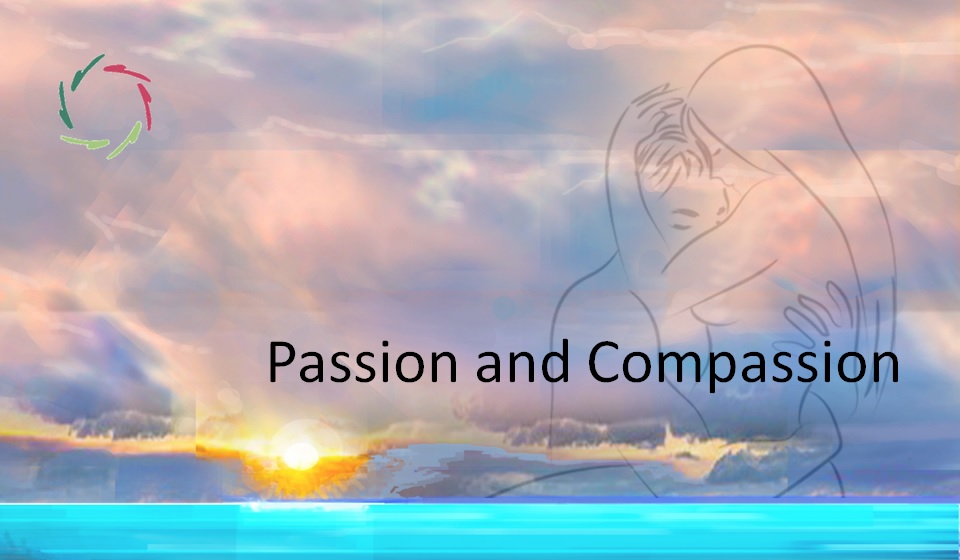Two-Sided Compassion

To relieve suffering and to attain human growth: these two sides form ‘Compassion,’ which one may see as the main aim of humanity.
Compassion (with big C) is not something like ‘pity’.
To keep the distinction clear, I write Compassion in this text with capital C.
A total person (no mere ego) is the modality in which Compassion can exist and thrive. Moreover, this total person should be healthy, healed, whole. Not in a state of dissociation [see: “Cause of All Suffering: Dissociation”].
These two conditions show that one can fruitfully think about Compassion from two different angles.
Two-sided Compassion
Namely:
- to relieve suffering, as much as possible, not only ‘here and now’ but ‘always and everywhere.’
- to attain human growth, as much as possible, likewise.
These two sides can be thought of separately. That’s interesting to do in order to attain a better view of each. However, it’s artificial since true Compassion always has these two sides, simultaneously, necessarily.
One side without the other isn’t sustainable.
Relief of suffering without growth as aim can be superficial and temporary. It doesn’t lead to – in Aurelian parlance – ‘Inner Strength.’ Thus, it may even lead to weakness and decay over time. Thus: more suffering.
Striving for growth without any view upon suffering is, well, not empathic, not ethical. In the course of time, it may cause much suffering either in oneself or in others. This will also prevent further growth.
Both are needed. They blend in the concept of Compassion.
Ultimately one
‘Growth’ is about striving towards a healed state, an innerly congruent person. Suffering – not pain by itself, for instance, but the suffering from chronic pain – is hurtful because of the lack of wholeness.
Poetically, it’s the ‘tear in the soul’ that is the suffering itself. The yearning towards wholeness is what is felt as ‘suffering.’ You see? The ‘yearning’ and the ‘suffering’ are one and the same feeling. One doesn’t cause the other.
The yearning should be ‘cherished’
because of Compassion.
By killing the suffering just like that – if possible at all – one forsakes its aim as a call for a very different action. It may ‘work’ but then: ‘what’ works and ‘towards what’?
Listening to the suffering – either that of oneself or others – is different. One can find Listening [see: “Deep Listening”] deep into the culture of East and West. Deep there, it’s about reception as well as action.
That’s because Compassion is deeply human.
Maybe even deeply universal.
[see also: “Compassionate A.I.”]


